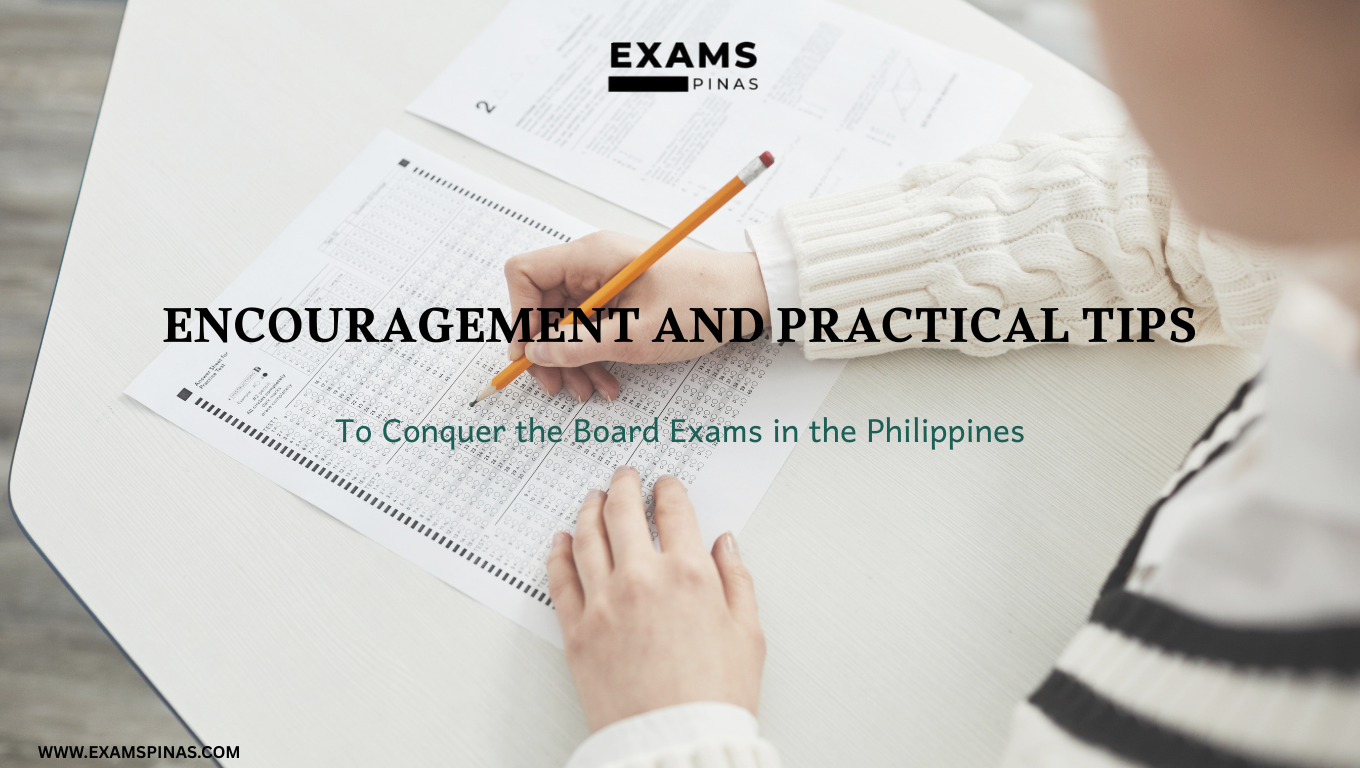For many students in the Philippines, the board exam is one of the most challenging milestones in their academic and professional journey. Whether you’re preparing for the Licensure Exam for Teachers (LET), the CPA board exam, the Nursing Licensure Exam, or any other professional board, the pressure can feel overwhelming. But with the right mindset and strategies, you can face the challenge with confidence. Here are words of encouragement and practical tips to help you conquer the board exams in the Philippines.
1. Believe in Yourself and Your Preparation
The first step to success is believing that you can do it. Self-doubt is natural, especially when the exam date is near, but remember that you have already invested time, effort, and energy into your studies. Trust your preparation and your capabilities. Many who came before you faced the same fear but passed with determination and faith. Tell yourself daily: “I am ready, and I will succeed.”
2. Create a Study Plan that Works for You
A well-structured study plan is essential when preparing for board exams in the Philippines. Divide your subjects into manageable chunks and set realistic goals for each day. Prioritize the topics that you find most difficult, but don’t neglect areas where you are already strong. Consistency is key. Studying in small, regular sessions is far more effective than cramming a week before the exam.
Pro Tip: Use the Pomodoro technique (25 minutes of focused study with 5-minute breaks) to maintain concentration without burning out.
3. Use Review Centers and Online Resources Wisely
Many aspiring professionals enroll in review centers to guide their preparation. While review classes are helpful, don’t just rely on them. Complement your learning with online resources, practice exams, and study groups. The Professional Regulation Commission (PRC) releases official coverage and guidelines for every exam, so make sure your materials are updated and aligned with the current syllabus.
4. Practice Past Exams and Mock Tests
One of the most effective strategies to prepare for the board exam is to practice with past test questions and mock exams. Doing this familiarizes you with the exam format, timing, and question style. It also helps reduce anxiety since you’ll know what to expect. After each mock test, analyze your mistakes and focus on improving your weak areas.
5. Take Care of Your Health
Your mind can only function at its best if your body is healthy. Don’t sacrifice sleep for extra hours of studying; it will only make you less productive. Aim for at least 6–8 hours of rest. Eat nutritious meals, stay hydrated, and exercise even for just 15–30 minutes a day. A clear and energized mind will give you the focus you need during review sessions and on exam day.
6. Stay Positive and Manage Stress
Preparing for the board exams in the Philippines is mentally and emotionally demanding. It’s easy to feel discouraged, especially when you encounter difficult topics or when you compare yourself to others. Remember that everyone has their own pace. Instead of stressing, find ways to relax pray, meditate, listen to music, or talk to supportive friends and family.
7. Exam Day Tips to Remember
When the big day arrives, keep these simple reminders in mind:
- Bring all required documents and IDs early.
- Avoid last-minute cramming. Trust what you’ve studied.
- Read each question carefully and manage your time wisely.
- Stay calm and breathe confidence is your best tool.
Final Encouragement
Passing the board exams in the Philippines is not only about knowledge, but also about perseverance, faith, and discipline. Thousands of professionals have successfully conquered this challenge, and you can too. Believe in your abilities, stick to your study plan, and take care of your well-being.
Remember: The board exam is not the end of your journey, but the beginning of your professional career. With hard work, positivity, and faith, you’ll soon achieve the title you’ve been working for.
Good luck future professionals you’ve got this!

